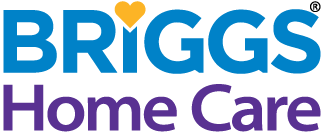In today’s aging society, the role of family caregivers and adult children in coordinating care for their elderly parents has never been more important. With the increasing need for home care solutions, understanding how to effectively manage and communicate with caregivers is essential in ensuring our aging parents receive the best care possible. This post aims to guide you through the complexities of coordinating caregivers, navigating home care options, and balancing family dynamics while prioritizing the well-being of both the caregiver and the elderly.
Understanding the Role of a Caregiver
A caregiver is anyone who provides assistance to another in need, especially in tasks related to daily living. This role encompasses a wide range of responsibilities, from personal care to nursing tasks, and even companionship. The dedication required can often take a toll emotionally and physically on the caregiver, highlighting the necessity for clear communication and support from family members.
Navigating Home Care Options
When considering home care for your aging parent, it’s crucial to understand the array of services available. Whether it’s personal care assistance, nursing care, or simply companionship, each type of service caters to different needs. Selecting the right home care provider involves considering factors such as the level of care needed, compatibility with the caregiver, and financial implications.
Coordinating with Siblings and Family Members
One of the biggest challenges in caring for aging parents is ensuring all family members are on the same page. Open and honest communication is the foundation of effective coordination. It’s beneficial to hold regular meetings with siblings and family members to discuss the care plan, divide responsibilities fairly, and address any concerns. Establishing a clear schedule and setting shared goals can help in making the caregiving process smoother for everyone involved.
Utilizing Technology in Care Coordination
Thanks to modern technology, coordinating care has become more manageable. Several apps and platforms are available to help caregivers track medication schedules, share updates on the elder’s health status, and organize appointments. These tools not only help keep everyone informed but also facilitate the management of the logistical aspects of caregiving.
Self-Care Tips for Caregivers
It’s equally important for caregivers to look after their own health and well-being. Caregiver burnout is a real concern, and adopting self-care practices is essential. This can include setting aside time for relaxation, pursuing hobbies, and seeking support when needed. Remember, taking care of yourself allows you to provide the best care for your aging loved one.
Final Thoughts on Coordinating Caregivers for Aging Parents
Coordinating caregivers for aging parents is complex and demands cooperation, patience, and understanding from everyone involved. However, the process can be significantly easier by keeping open lines of communication, being informed about home care options, and harnessing the power of technology. It’s also essential for family caregivers to acknowledge their own needs and seek support to maintain their well-being.
Key Takeaways:
- Communication is Key: Effective coordination among family members, including siblings and caregivers, hinges on open and honest communication. Regular meetings and discussions can help ensure everyone is aligned with the care plan and responsibilities are evenly distributed.
- Understanding and Selecting Home Care Options: It is crucial to explore and understand the different types of home care services available. This understanding enables families to choose the right type of care for their aging parents, considering factors like the level of care needed and financial implications.
- The Importance of Caregiver Self-Care: To prevent caregiver burnout and maintain the quality of care provided to aging parents, caregivers must prioritize their own health and well-being through self-care practices. This ensures they have the capacity to provide the best possible care to their loved ones.
In navigating this challenging yet rewarding endeavor, remember that seeking help, sharing the load, and ensuring your own health are not just beneficial but necessary for providing your aging parent with the love and care they deserve.






